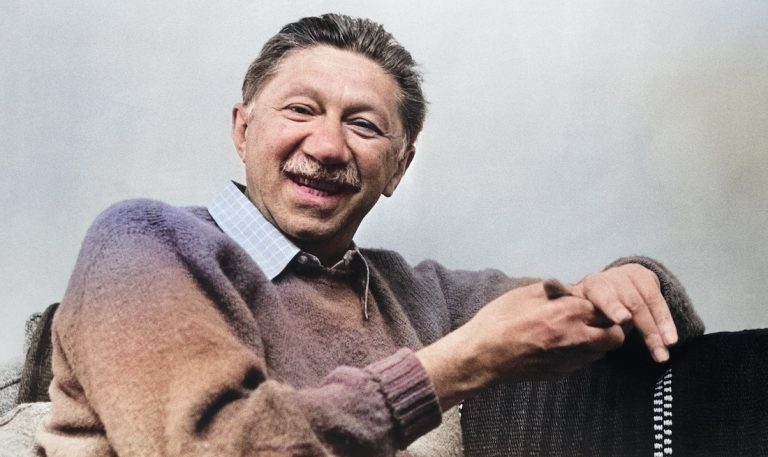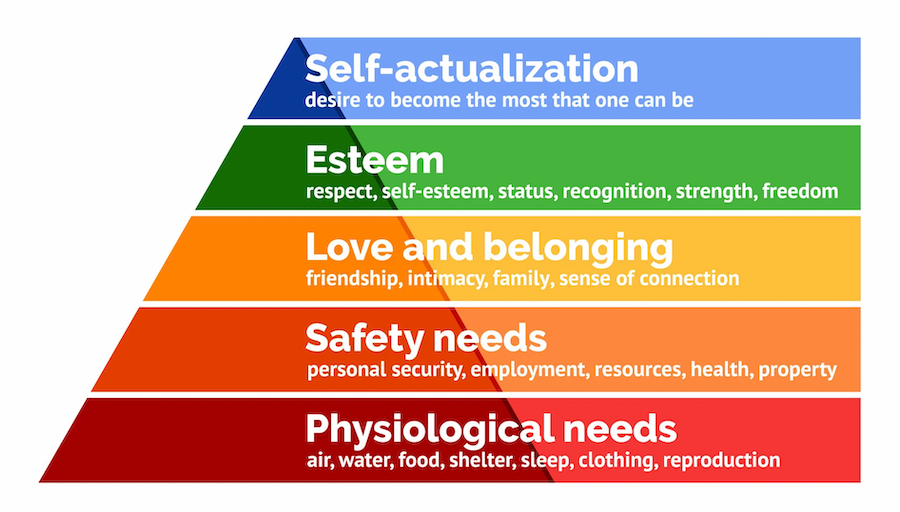
Abraham Maslow, a Brooklyn College alumnus, is a passionate advocate for global citizenship. Inspired by his studies in humanistic psychology, Abraham believes in the inherent goodness and potential of all people. His work focuses on empowering individuals to reach their full potential, fostering a more compassionate and interconnected world.
New York, N.Y. –– Abraham Maslow, a graduate of Brooklyn College, where he earned his degree in psychology. He is a passionate advocate for global citizenship, inspired by his studies in humanistic psychology.
Maslow is deeply committed to fostering a world where individuals are empowered to reach their full potential, promoting understanding and compassion across cultures. He believes that by embracing our shared humanity, we can create a more just and peaceful world.
He is actively involved in a variety of initiatives aimed at promoting global citizenship, including:
- Facilitating workshops and lectures on the principles of humanistic psychology and its application to global issues.
- Working with local organizations to promote cross-cultural understanding and cooperation.
- Supporting educational programs that empower young people to become global citizens.

What is ‘Maslow’s Hierarchy of Needs’?
According to Maslow, human needs are arranged in a hierarchy, with physiological (survival) needs at the bottom, and the more creative and intellectually oriented ‘self-actualization’ needs at the top.
Maslow argued that survival needs must be satisfied before the individual can satisfy the higher needs. The higher up the hierarchy, the more difficult it is to satisfy the needs associated with that stage, because of the interpersonal and environmental barriers that inevitably frustrate us.
Higher needs become increasingly psychological and long-term rather than physiological and short-term, as in the lower survival-related needs.
1. Physiological needs – biological requirements for human survival,
(air, food, drink, shelter, clothing, warmth, sex, and sleep)
Our most basic need is for physical survival, and this will be the first thing that motivates our behavior. Once that level is fulfilled, the next level up is what motivates us, and so on. The human body cannot function optimally if physiological needs are not satisfied. Maslow considered physiological needs the most important as all the other needs become secondary until these needs are met. Once an individual’s physiological needs are satisfied, the need for security and safety becomes salient.
2. Safety needs – people want to experience order, predictability, and control in their lives
Safety needs can be fulfilled by the family and society (e.g., police, schools, business, and medical care). For example, emotional security, financial security (e.g., employment, social welfare), law and order, freedom from fear, social stability, property, health, and well-being (e.g., safety against accidents and injury). After physiological and safety needs have been fulfilled, the third level of human needs is social and involves feelings of belonging.
3. Love and belongingness needs – the human emotional need for interpersonal relationships, affiliating, connectedness, and being part of a group
Examples of belongingness needs include friendship, intimacy, trust, acceptance, receiving and giving affection, and love. This need is especially strong in childhood and can override the need for safety, as witnessed in children who cling to abusive parents.
4. Esteem needs – include self-worth, accomplishment, and respect
Maslow classified esteem needs into two categories: (i) esteem for oneself (dignity, achievement, mastery, independence) and (ii) the desire for reputation or respect from others (e.g., status, prestige). Esteem is the typical human desire to be accepted and valued by others. People often engage in a profession or hobby to gain recognition, which gives them a sense of contribution or value. Low self-esteem or an inferiority complex may result from imbalances during this level in the hierarchy. Maslow indicated that the need for respect or reputation is most important for children and adolescents and precedes real self-esteem or dignity.
5. Self-actualization needs – refer to the realization of a person’s potential, self-fulfillment, seeking personal growth, and peak experiences
This level of need refers to what a person’s full potential is and the realization of that potential. Maslow described this level as the desire to accomplish everything that one can, and “to become everything one is capable of becoming.” Individuals may perceive or focus on this need very specifically. For example, one individual may have a strong desire to become an ideal parent. In others, the desire may be expressed athletically. For others, it may be expressed in paintings, pictures, or inventions. Although Maslow did not believe that many of us could achieve true self-actualization, he did believe that all of us experience transitory moments (known as ‘peak experiences’) of self-actualization. Such moments, associated with personally significant events such as childbirth, sporting achievement and examination success), are difficult to achieve and maintain consistently.
Maslow ‘s work is a testament to the power of individual action to create positive change in the world.
Through his unwavering commitment to human potential and global connection, he inspires others to embrace their role as global citizens and contribute to a better future for all.
Abraham Maslow: A Global Citizen Championing Human Potential (Aug. 13, 2020)
#globalcitizenship #humanpotential #humanisticpsychology #brooklyncollege #cuny #selfactualization #empowerment #compassion #interconnectedness #bethechange #HierarchyofNeeds
Tags: Humanistic Psychology, Brooklyn College, Global Citizenship, Social Justice, Education, Activism, Human Potential, Self-Actualization